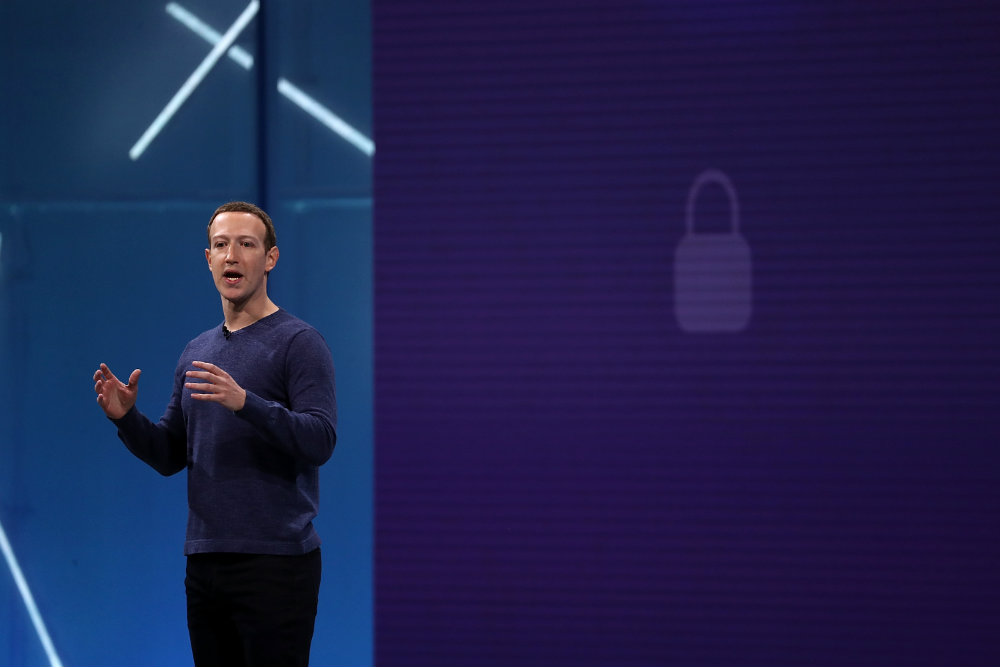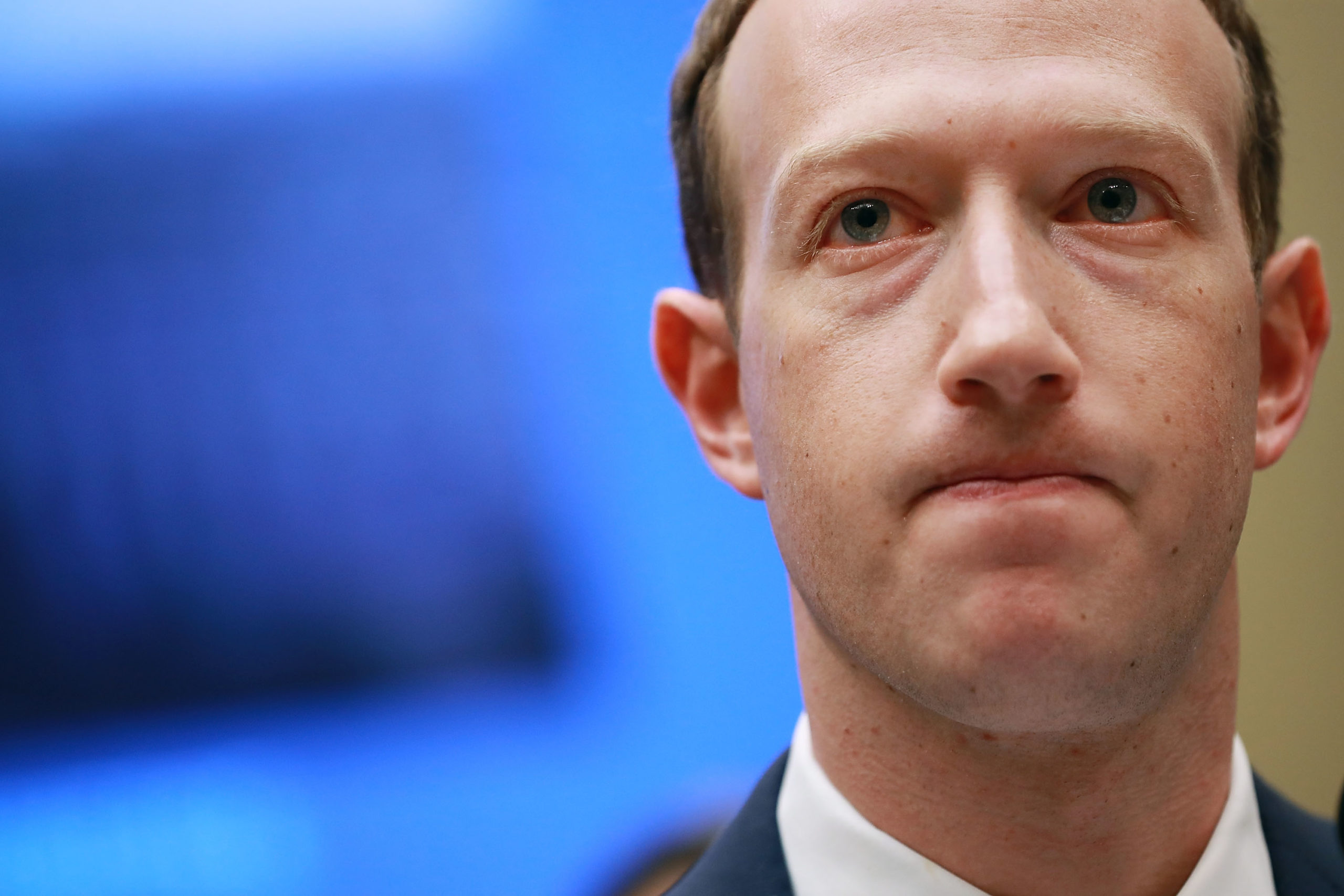Mark Zuckerberg‘s effort to curb the spread of conspiracy theories and blatant propaganda masquerading as legitimate news on Facebook is lacking, and everyone but Zuckerberg seems to know it. Case in point: In a new interview with Recode founder Kara Swisher, Facebook’s leader defended the presence of Alex Jones‘s paranoid far-right conspiracy site Infowars on his social network, and when Swisher pushed back, he doubled down and made excuses for Holocaust deniers. After his remarks garnered widespread outrage, Zuckerberg issued an equally obtuse “clarification.”
In the wide-ranging Q&A, Swisher took Zuckerberg to task for allowing outlets like Infowars to spread made-up stories about how “Sandy Hook didn’t happen” and asked why Facebook didn’t just remove stories that are undeniably false. His response was disappointing. From Recode:
I agree that it is false.
I also think that going to someone who is a victim of Sandy Hook and telling them, “Hey, no, you’re a liar” — that is harassment, and we actually will take that down. But overall, let’s take this whole closer to home…

Also Read
Malice In Zuckerland
I’m Jewish, and there’s a set of people who deny that the Holocaust happened.
I find that deeply offensive. But at the end of the day, I don’t believe that our platform should take that down because I think there are things that different people get wrong. I don’t think that they’re intentionally getting it wrong.
The idea that Holocaust deniers have malicious intent in regards to the content they share—that they are generally bigots or white nationalists spreading anti-Semitic misinformation, not simply misguided people who’ve accidentally flubbed their words—has apparently not occurred to Mark Zuckerberg. “It’s hard to impugn intent and to understand the intent. I just think, as abhorrent as some of those examples are, I think the reality is also that I get things wrong when I speak publicly,” he continued. “I’m sure you do. I’m sure a lot of leaders and public figures we respect do too, and I just don’t think that it is the right thing to say, ‘We’re going to take someone off the platform if they get things wrong, even multiple times.'”
That’s an awfully forgiving stance, and after his muddled justification of Holocaust deniers prompted public outcry, Zuckerberg exercised it immediately. “There’s one thing I want to clear up. I personally find Holocaust denial deeply offensive, and I absolutely didn’t intend to defend the intent of people who deny that,” he wrote in a subsequent email to Recode. “If something is spreading and is rated false by fact checkers, it would lose the vast majority of its distribution. … These issues are very challenging, but I believe that often the best way to fight offensive bad speech is with good speech.”
But it’s too late to de-rank Facebook’s ubiquitous platform, which has already come under scrutiny for allowing the Infowars of the world to spread demonstrably false conspiracy fodder about the Sandy Hook shooting, Pizzagate, and the death of DNC staffer Seth Rich, among other dubious topics. By Zuckerberg’s rationale, it’s incumbent on users to factcheck willfully erroneous material distributed on his company’s channels. But what does the notion of fighting “bad speech” with “good speech” mean, coming from a platform that constantly tweaks its algorithm to constrict the reach of legitimate news sites? If “good speech” is so very important to Facebook, why did its CEO take two tries to establish a clear stance on Holocaust denialism?
The laissez-faire attitude isn’t exclusive to Zuckerberg, though—at Facebook, it’s the party line. On Tuesday, the company’s global head of policy management, Monika Bickert, testified before the House Judiciary Committee, where representatives grilled her on why Facebook allows Infowars to maintain an official page on its network, particularly after an armed gunman burst into a D.C. pizza joint based on bogus child trafficking claims propagated in part by Jones’s site. Bickert had a difficult time explaining why exactly Infowars hasn’t been banned from Facebook, except to cite a nebulous “three strikes” threshold required to violate its terms of service. The creators of Infowars, Bickert testified, “have not reached the threshold.”





